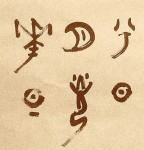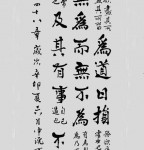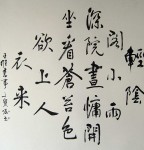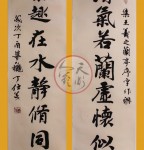One of the GREAT books in the China
Paul Frandano,
Scholarly work that is easily accessible to non-specialists, historian Ray Huang's(黄仁宇) ironically subtitled 1587: A Year of No Significance focuses on the Ming Emperor Wan-li--who rose to the throne and the age of eight and who reigned for 48 years--and five other figures in the court of the decadent, doomed Ming Dynasty. This is an off-beat masterpiece of both history and biography, learned yet chatty, steeped in the dense, ancient imperial chronicles yet surprisingly contemporary in its oblique illuminations of contemporary Chinese political culture through the prism of history.
Huang's approach is reminiscent of Kurosawa's in Roshomon, employing multiple points of view from the imperial court in seeking to expose and foreshadow the demise of the Ming. We meet archetypes from the drama of Chinese history: the Machiavellian chief minister, the perceptive but disregarded general, the anguished philosopher, and, at the story's center, the eccentric Wan-li emperor himself. In choosing to write about Wan-li, Huang is able to create a measure of narrative tension unusual in Chinese historical writing, because by the Year of the Pig, 1587, the emperor has ceased to fulfil his prescribed role in rite and ritual as the embodiment of moral order. Wan-li's behavior causes great agitation among his courtiers, bureaucrats, retainers, imperial wives and concubines, eunuchs, and slaves, each of whom occupies a carefully defined place in the regimented life inside the walls of the Imperial Compound and who, without punctilious observances by the emperor, is without a fixed point of reference.
A special feature of this book is the wonderful chapter on the incorruptible censor Hai Rui, who dared impeach the Emperor. Hai Rui is familar to students of modern
Although published by a major university press, 1587: A Year of No Significance is not simply for specialists. (It is, however, highly regarded among professional
A variety of excellent, biographically-based popular works on imperial China remain in print--Jean Levi's historical novel, Emperor of China, and Jonathan Spence's work on the Qing emperor Kang-hsi are among the best known--but, in my opinion, Huang's book surpasses them all. 1587 is, indeed, a work of great significance, by an author of encyclopaedic knowledge and scope and a stylist of vast charm and elegance.
| < Prev | Next > |
|---|
- 2009-06-24 - 廖氏愤青教材(转载)
- 2009-04-08 - 天使乎,白狼乎?
- 2009-01-07 - 丁仕美的君子风 - 转载
- 2008-12-19 - 从历史看儒家文明的生命力
- 2008-12-04 - 司徒雷登:别了六十年还要回来
- 2008-11-23 - 晋豫之行日记(2)- 萧功秦
- 2008-11-22 - 晋豫之行日记(1)-萧功秦
- 2008-10-24 - 叫洋人大开眼界-转载
- 2008-10-19 - 我该买什么样的房子?
- 2008-10-08 - 都缺个陪聊的儿女













